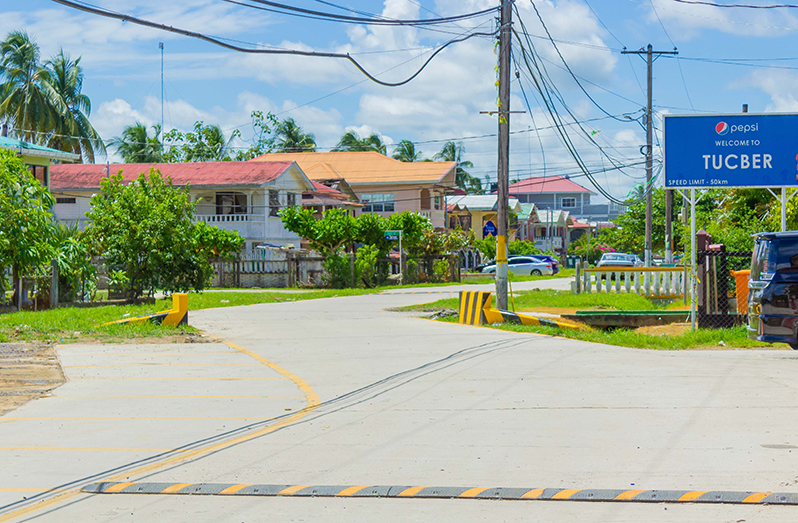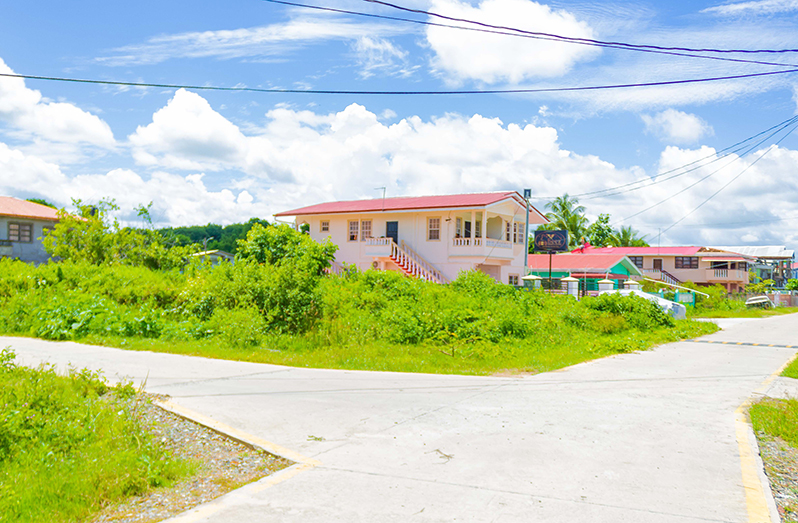THE village of Tucber in New Amsterdam seems to be home to some of Guyana’s happiest people.
This diverse community, nestled just off its neighbouring township, boasts a population of three thousand residents living among its dense cross streets. What began as a simple settlement has become one of the region’s most notable assets. Tucber is renowned for its love of football, its people’s emphasis on fun, and a rich history that has propelled the community forward.
Today, most of Tucber’s residents are sons and daughters of the soil, born and raised in the community. In recent times, however, an influx of newcomers has further diversified the village, adding to its vibrant tapestry of cultures and experiences.
Among the three thousand residents of Tucber is community representative, James King. Born and raised in Winkel, Tucber, James stepped up to the plate of community leadership more than two decades ago after noticing a lack of representation for the smaller, lesser-known areas in the region.
As he stated, “My responsibility is development, and I would say that, in the entire constituency, we have about three thousand people. The community is big, and we have a lot of smaller communities within what most people call Tucber. We have Tucber itself. We have Nurseville and Smythville, as well as Queenstown. I have been in my role as a community representative for about twenty years. I did it at first because no one was making an effort to represent the community, and I decided that I would.”

James has never regretted his decision and is immensely proud of the changes he has witnessed in the community. Like people, communities have different origins, and Tucber’s beginnings are rooted in a deep sense of unity. According to James, Tucber was built on the backs of hardworking Guyanese who had a vision for a community and brought it to life. As he explained, “Tucber is a community that has developed a lot in the last few years. Actually, this place began as a trade union initiative; even the name Tucber is an acronym for Trade Union Berbice.”
The essence of community development endures today, with villagers still working tirelessly to ensure the growth of their home. Since its inception, the people of Tucber have dedicated themselves to making the village what it is today. Among the initiatives taken, the Stand Pipe Foundation stands out as one of the most unique and impactful. “We, the community, came together more than ten years ago and started the Stand Pipe Foundation. It began as a way of giving back; even the name, Stand Pipe Foundation, means giving back,” said James.
The foundation focuses on children, youths, and the community’s less fortunate population. From organising barbecues to distributing hampers and hosting giveaways, the foundation’s biggest support comes from fellow villagers. As James explained, “The foundation normally tries to focus on the children and young people of the community. We do fundraisers and plenty of other things to help get funds for things like back-to-school supplies. But most of our funds come from our villagers who have migrated.”

According to James, the community has always prioritised its youth; thus far, the Stand Pipe Foundation has seen much success. They’ve provided numerous students with more than just books and laptops; they’ve given them hope for a brighter future. The village has seen change and development in many other areas as well, the most recent being infrastructure. As community councillor, James is responsible for the village’s infrastructure, mainly roads and bridges.
The spirit of Tucber extends beyond its physical improvements. The community’s love for football has become a unifying force, bringing together people of all ages and backgrounds. Local tournaments are a regular occurrence, fostering healthy competition and camaraderie among residents. This passion for sports has even produced several talented players who have gone on to represent Guyana at national levels. James stated, “We are working towards a new football field. With help from the ministry; work will begin very soon.” He said.
Education also plays a crucial role in Tucber’s development. The community takes pride in its schools, which have consistently produced high achievers. Many of Tucber’s youth have gone on to pursue higher education, returning to contribute to their hometown’s growth and prosperity.
As Tucber continues to evolve, it faces new challenges and opportunities. Climate change and environmental concerns have prompted the community to adopt more sustainable practices. James and his council have a clear vision of what they want their community to become, and they have chartered a clear course to do so. James further stated, “We have a plan and goal of how we want the community to look. We are working on various things to help build the community.”











